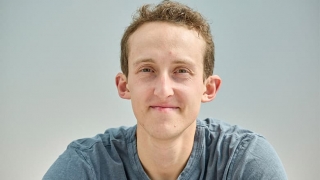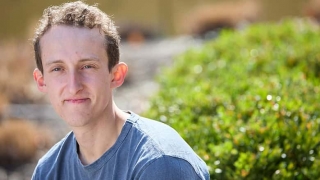CAR T-Cell Therapy for Relapsed ALL: Daniel’s Story
Published on
Published on
Shortly after Daniel turned 16, he was diagnosed with acute lymphoblastic leukemia (ALL), the most common form of childhood cancer. Over the next four years, the cancer came back five times. Then in 2016, he traveled from his home in Michigan to Children's Hospital of Philadelphia (CHOP) to participate in a clinical trial for chimeric antigen receptor (“CAR”) T-cell therapy. Since then, he has been cancer-free.
 The symptoms Daniel initially experienced didn’t seem alarming: He felt tired and had some hip pain. Then he noticed a rash on his leg — which actually turned out to be the tiny purple spots called petechiae that often signal a blood cancer. He went to an emergency room near his home in Michigan, was diagnosed with ALL, and was admitted to the hospital.
The symptoms Daniel initially experienced didn’t seem alarming: He felt tired and had some hip pain. Then he noticed a rash on his leg — which actually turned out to be the tiny purple spots called petechiae that often signal a blood cancer. He went to an emergency room near his home in Michigan, was diagnosed with ALL, and was admitted to the hospital.
His oncologists at the University of Michigan started him on the standard chemotherapy regimen. For a while, the disease took a toll on his body. “Initially I lost 40 pounds,” he says. “I was very, very skinny.” At his high school, Daniel had been on the tennis and track teams, and outside of school he enjoyed pick-up games of basketball with friends. But while fighting cancer, “At my worst, I couldn’t even walk down the hall.”
There are about 3,000 children and youth up to age 21 diagnosed with ALL each year in the United States. ALL has one of the highest cure rates of all childhood cancers. In Daniel’s case, however, while he was on the maintenance phase of chemotherapy, cancer was again detected. “I had to start all over with the chemotherapy,” he recalls, “and then I relapsed again.” A more powerful round of chemotherapy could not prevent the cancer from coming back, and neither could radiation and then a bone marrow transplant.
At this point, his doctors realized he would qualify for an experimental study at CHOP using CAR T-cell therapy. Four years prior, in 2012, the Cancer Immunotherapy team at CHOP was the first to use CAR T-cell therapy in a child with acute lymphoblastic leukemia, and it sent her cancer into remission.
For Daniel, the prospect of this experimental treatment was profound. “It was the last hope,” he says, “but at the same time, I was excited. I always had the attitude that something would work out.” By this point in his life, he had followed his interest in science and healthcare to become a kinesiology major in college. “I asked a lot of questions, and I felt I understood what I needed to understand about the therapy.”
CAR T-cell therapy harnesses a patient’s own immune system to help destroy cancer. Daniel’s T cells, a type of white blood cell, were collected, reprogrammed in a lab so they could find and destroy the cancer cells, and infused back into him. Afterward, because his immune system went into overdrive, he needed to be admitted to CHOP for several days. “About two or three months later, I started to feel close to normal,” he says. Then he adds, very matter-of-factly, “Since then, I’ve had no problems”
 Now 26, he lives in Denver, received a degree in physical therapy and is about to start a job: “I’ve always wanted to do something in the healthcare field.” He continues to be active — hiking, rock climbing, biking. Every patient who has received CAR T-cell therapy as part of a clinical trial returns to CHOP annually for 15 years to be evaluated, which means Daniel has nine more years of visits to Philadelphia, which he considers “a nice reminder” that he has played a small part in helping the treatment become more widespread.
Now 26, he lives in Denver, received a degree in physical therapy and is about to start a job: “I’ve always wanted to do something in the healthcare field.” He continues to be active — hiking, rock climbing, biking. Every patient who has received CAR T-cell therapy as part of a clinical trial returns to CHOP annually for 15 years to be evaluated, which means Daniel has nine more years of visits to Philadelphia, which he considers “a nice reminder” that he has played a small part in helping the treatment become more widespread.
“I definitely feel that, holy cow, I’m very fortunate to have been a part of this.”